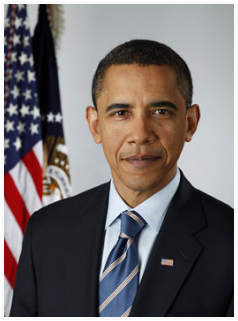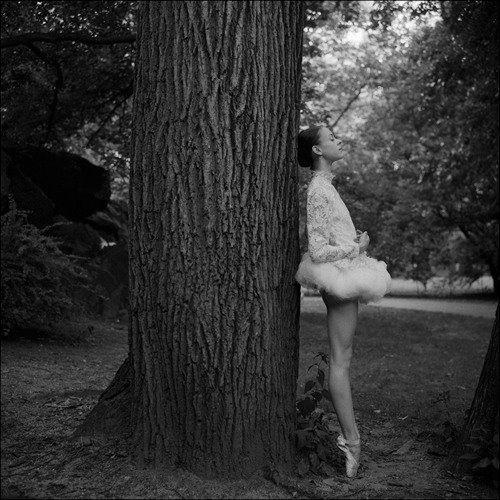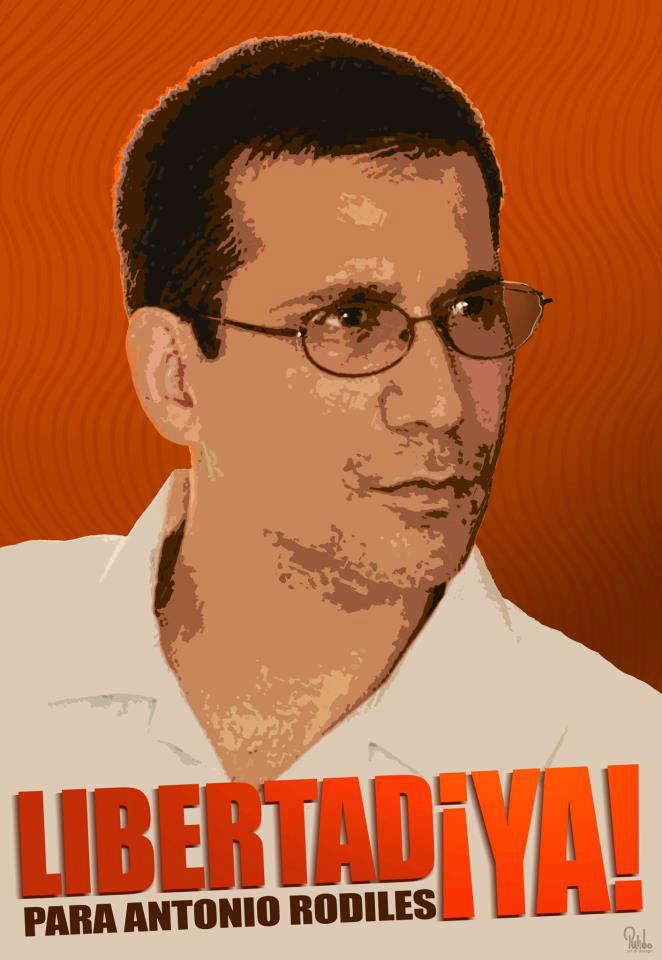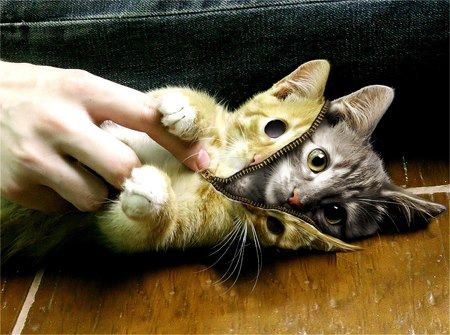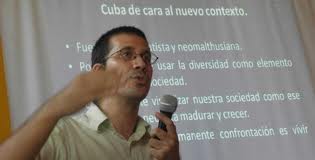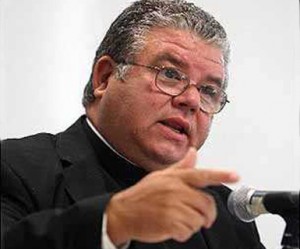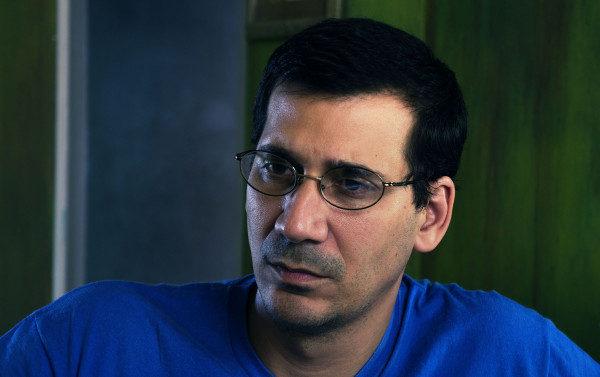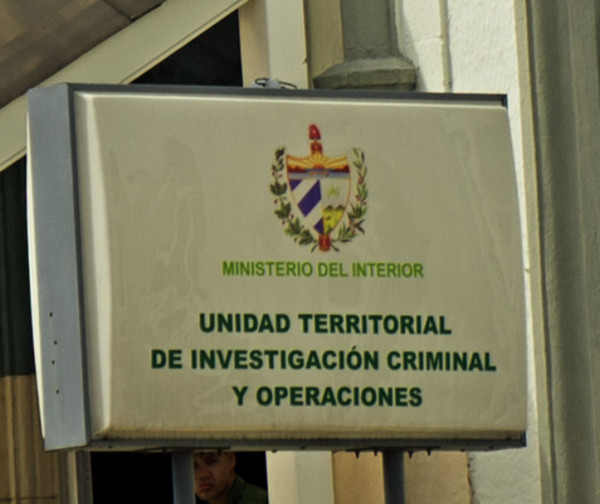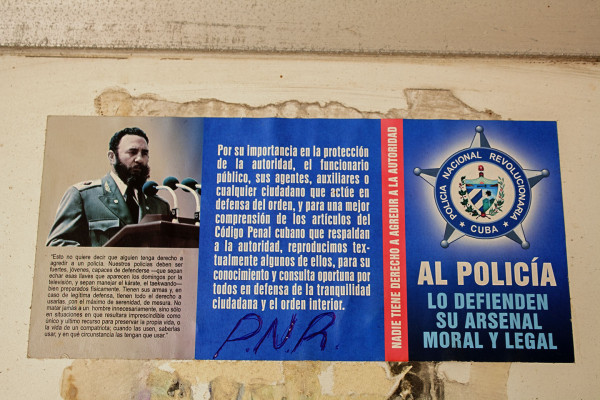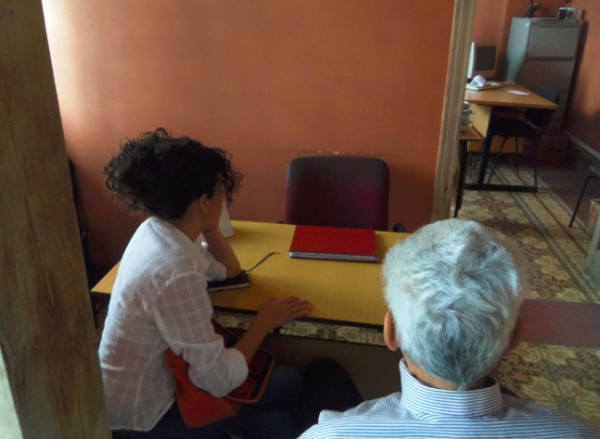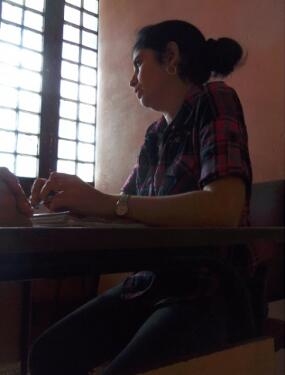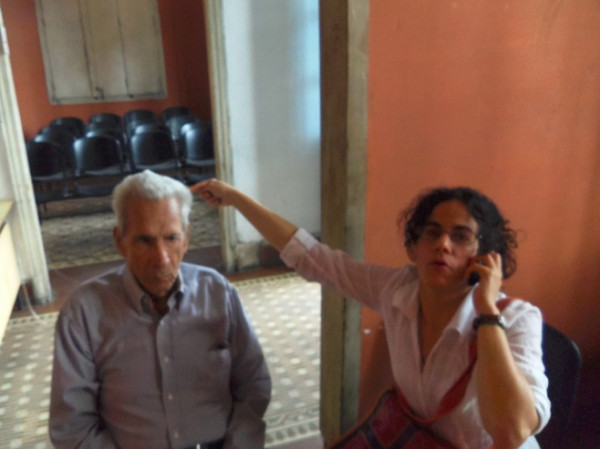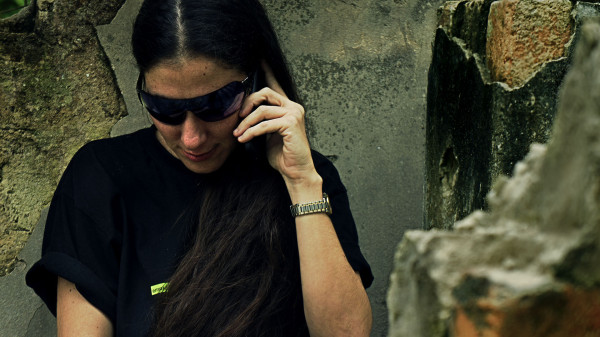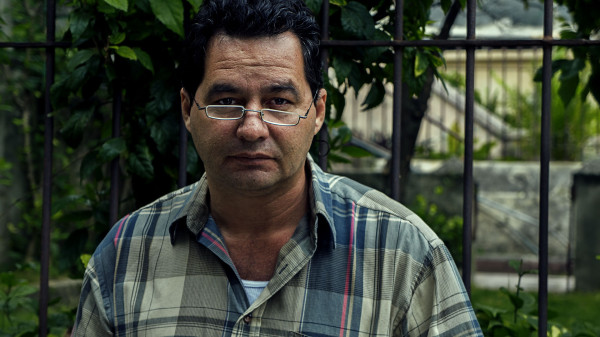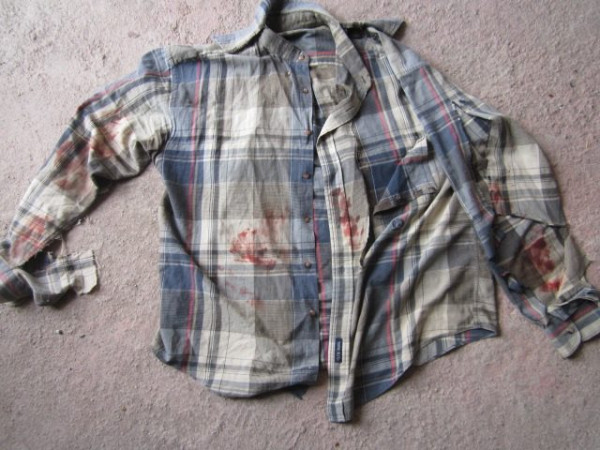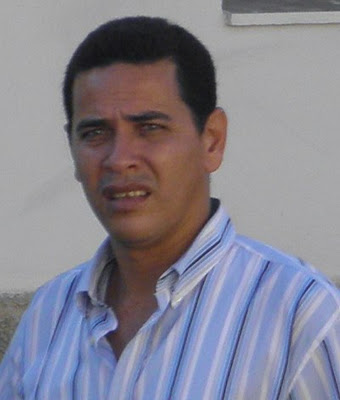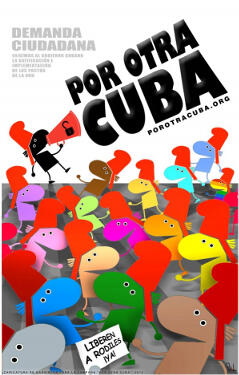Room N. N for Nothing, Nobody, None.
I am writing in the suburban night in the Surgical-Clinic of 26th Street, next to Sports City, the flying saucer blocked by the architecture of the hospital itself.
The view, the crown of lights of the Plaza of the Revolution. From the third floor, passing in slow motion the buses and the sirens of the cop cars and the ambulances. There are ancestral trees. Crowns as the crow flies. And humidity, warm and stimulating to be seated in an armchair typing.
This I do. I am a witness. From the balcony the night is new, first-world, habitable. A night of post-socialist freedom. A night of uchronic beauty, anachronistic. A night where I remember all the people I loved, whom I will love until the end of eternity. From this free MINSAP* dive, making me want to be immortal in Havana, to live reversibly, to survive death in this time and place and, of course, never to tell. Because it would be criminal to contaminate those still unborn.
My uncle. It is not the first time I write of these atavistic uncles who suddenly fell into bed and there is no cure, caguairanes** of a communism today already without communists, the woodwork of a Marxist materialism that, before the fly-plagued pain of Bed 12, now means absolutely nothing, nobody, none. Room N of the Revolution.
His name is Felix, but we always called him Kin (as a child I would write it with an M), I suppose for some lost play on words. The spine, it seemed at first, exploded into a thousand shards of pain. A collapsed vertebra, osteoporosis and other palliatives against the worst. Then, the diagnosis put aside all benign traces . A diagnosis whispered drop by drop from week to week, to deceive like a child our patient of 80 years, according to the added tests and tests that must be resolved within and outside the hospital.
This is not the first time I spent the night here. I saw an error committed with the injections by an almost teenage nurse, that in a miracle could be fixed when the reaction of the affected seemed already irreversible, tachycardia and tremor (afterwards seeing the cover up among colleagues to justify it in the medical record). I saw a dying father hit his already adult daughter in the face, in the midst of terminal delirium, reflecting between fits that he had always been healthy. I saw the baths, no matter how hard they tried, always infected with odors (urine and blood, and little turds unsinkable for days). I saw, and I see again tonight, old men abandoned by their families, alone at least in the dark hours of the night, depending on the charity of the rest of the patients and their families (just now they look at me as if hoping to see me type stains of sense on the screen, the last light to turn off in this cubicle).
Sometimes I look out into the hallway. I see the vents with white steam of the Sterilization Department, I guess. There is a sign that says Nephrology. Some windows are missing (not as many as in other wards of this city) and I glimpse silhouettes lying in the distance, perhaps very serious patients who, I don’t know why, look to me like women. I am this, an eavesdropper in the midst of the most terrible intimacy of others.
There are cats of the roofs of the lower level, some plump beasts who depend on the food waste thrown from every floor of the hospital, sacks that burst with a greasy sound. Here I never eat or drink or use the bathroom, fearful of contracting a certain kind of susceptibility that then would force me to be admitted. The bulbs in the park are yellow-orange and give the building a dark splendor. It’s beautiful. It’s nice to watch this spectacle of the debacle, imagining that one is never tapped to be a victim, that we are safe from that.
Time moves slowly, but not too much so. With a little glass of warm milk, the canon sounds on the horizon and the doors of the room close (so as not to attract death in these hours when there are no doctors anywhere). After the usual Cuban brawls between personnel and patients the silence becomes sepulchral, barely heard apocryphal moans from under the sheets. The muteness of midnight. The gratefulness. It’s an inevitable omen, of the posthumous peace that so much martyrdom will first cost my uncle. The neon lights go off over my head and then it cools down still further.
I read a Pole, Adam Zagajewski, and his precious political prose. I drink of these atrocities in the heart of western civilization. His book oozes compassion for the human being. I want to imitate him when my time comes. I would like to be a noble European writer and not this trapped Cuban who still can’t get free.
Years ago my uncle (maternal) and my father discussed the guilt of Fidel, in a little house in Lawton during our family lunches at the end of the week (technically, the end of history). I was on the side of both of them, but not of Fidel, so ubiquitously abusive. My father was much more intelligent and cynical (which made me proud, but I was sad for Kin) and perhaps because of this he died first, sarcastically one August 13th*** (by merciful, painless, metastasis), that opprobrious Sunday of the years zero and two thousand. So, the dispute was truncated between the ballsy peasant communist and the cowardly liberal functionary. Long-lived men, both of them, who lived difficult lives in different ways. Antipodes. Now, fate seems to want to erase with a single broom the other two legs of the discussion: Felix and Fidel.
A bitter Cuban broom. How many nights like this do I wait, between sounds and moans and retching, between my memory and this secret manipulation. How many friends and lovers have I betrayed along the way, pretending not to notice that the truth is vile? Is that why nobody calls to feel sorry for me now? Perhaps I am safe from State Security in this bunker of boredom? My Adamic writing in Zagajekski style will have its Genesis this September? Orlando Luis, 1:1.
I hear the vicissitudes of civic activism by text message, chains of mass messages. Prisoners for pleasure, acts of repudiation, unlikely charges, wholesale proclamations, condemnations that make a joke of the same court that issued them, hunger strikes with reporters, accidents of convenience, new generations of brilliant people squandered while I lose sleep here. Shielded by the tap-tap of my laptop. At the margin of Good and Evil. Lost, like the beginning of the world. Like before the first line and the charitable view of Havana. Like after the last that I demonically dare to write.
Translator’s notes:
*MINSAP – Ministry of Public Health
**Caguairán is a tree known for its longevity and strength, and is one of the terms Fidel Castro’s acolytes use to refer to him.
*** August 13th is Fidel Castro’s birthday
September 22 2012
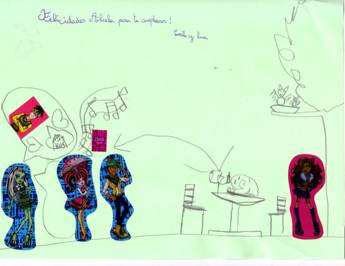 Yesterday was my saint’s day. I have not gotten excited about it for a long time because, with each passing year, I have had to say goodbye to many important people in my life.
Yesterday was my saint’s day. I have not gotten excited about it for a long time because, with each passing year, I have had to say goodbye to many important people in my life.
